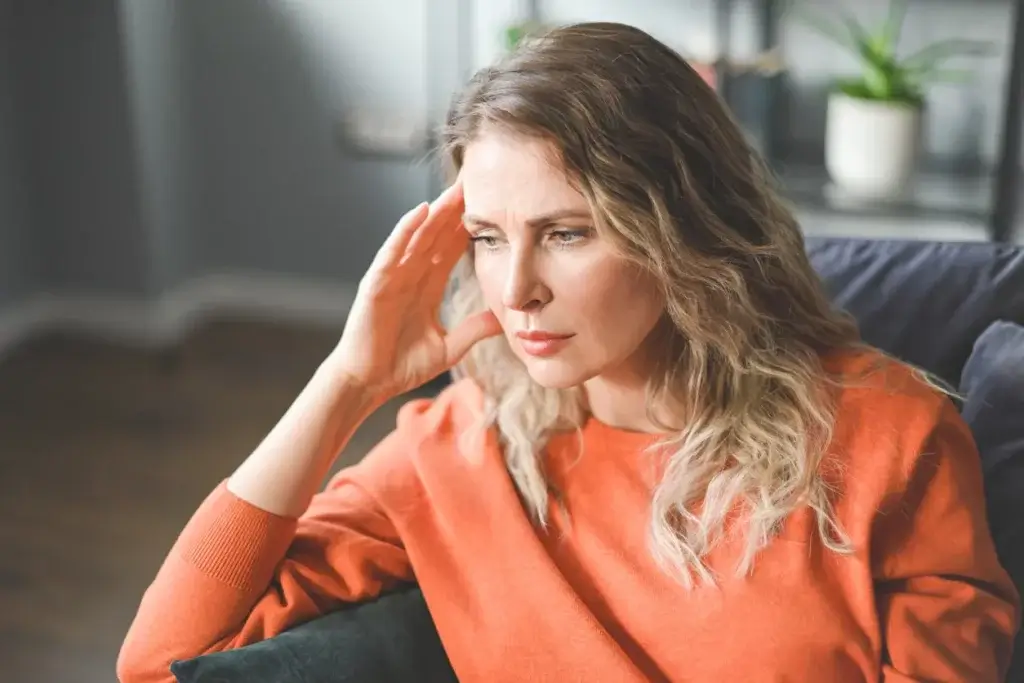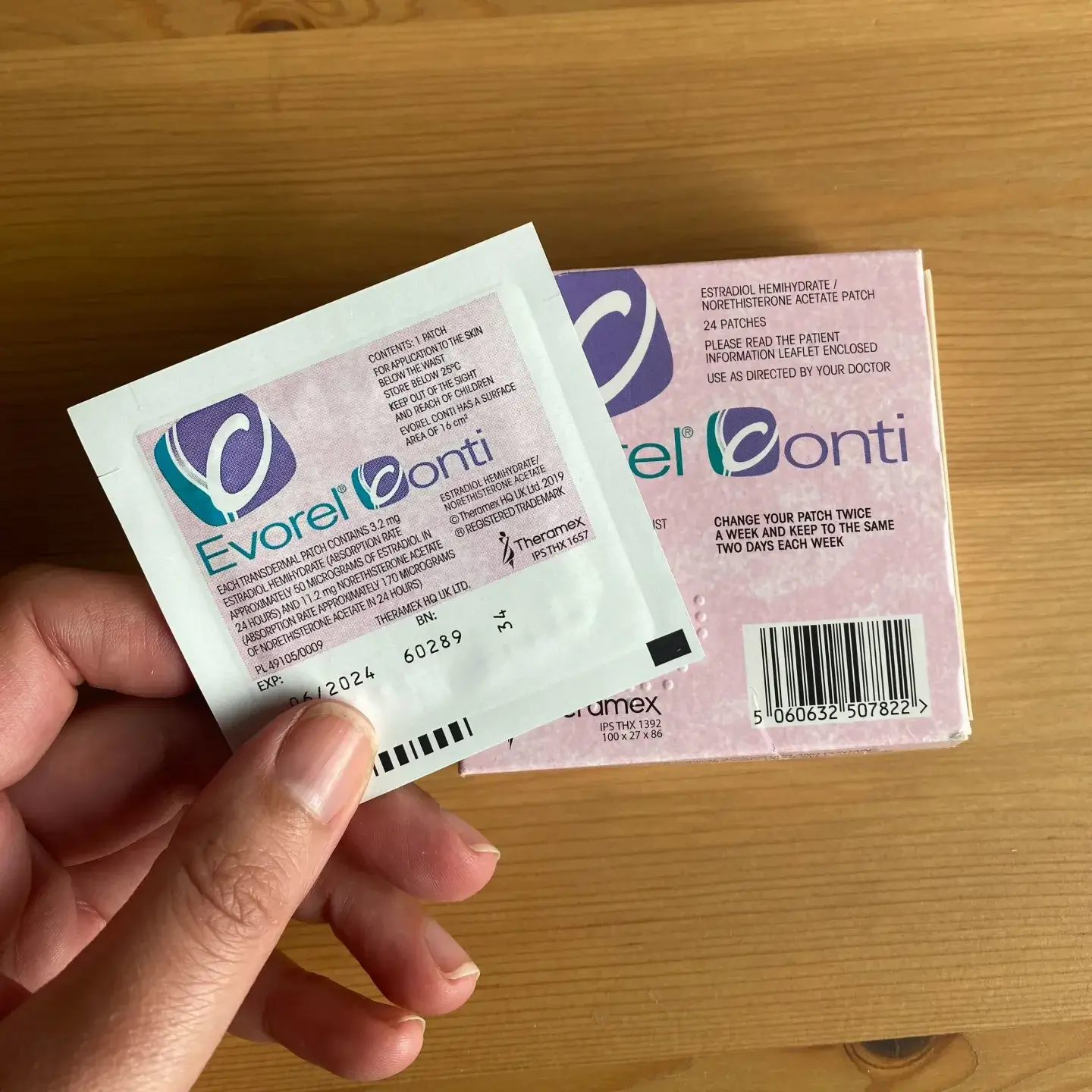4 mins read
Natalie’s Perimenopause Story

My perimenopause journey started in 2021 but I struggled to get support as no one was piecing together my symptoms and making the connection with perimenopause.
I was forced to deal with my symptoms alone for over a year, I thought I was either going crazy or dying. I felt very lost and scared.
It wasn’t until I was speaking to a friend who was going through similar things that I realised it could be perimenopause. I Googled it and just thought ‘oh my goodness, that’s exactly what it is’. So, I was the one to first suggest perimenopause to my doctors.
Perimenopause or something else?
My symptoms weren’t the ones you’d immediately think of as being perimenopause – such as hot flushes.
I suffered from heart palpitations, and it was these that pushed me to get checked out. I also suffered from dizziness, as well as a heavy feeling in my legs which would develop into a pins & needles sensation.
Doctors put the palpitations down to either anxiety or a possible side effect from COVID. I’d never really suffered from anxiety so that diagnosis didn’t sit well with me – but when the doctors are telling you this, you question yourself and think ‘am I anxious?’.
About six months later, I got a really dizzy spell followed by tinnitus in my ear. I had an MRI scan and saw an audiologist, but it still doesn’t click that this could be something to do with my hormones.
I was getting regular heart palpitations, along with arthritic fingers and hair loss too.
My symptoms all seemed to get worse around the time of ovulation, particularly the heart palpitations. My periods got a lot worse too. Not necessarily more bleeding, but the pain and the mood changes intensified – I’m 100 times more emotional than I’ve ever been. I also get extreme headaches around the time of my period.
Memory & sleep problems
Forgetfulness has been a real problem. I’m a school teacher and I went in one day and it felt like my tool bag for teaching had gone out the window. I couldn’t control the class or come up with any activities to fill the gaps, despite my 20 years of experience. It makes you feel crazy – I was Googling things like early-onset dementia.
I also have insomnia; I can go to sleep fine but if I wake up at 4am, that’s me awake for the day.
Researching HRT
I have fibroids which means I’ve been advised against HRT because the oestrogen can make them grow. I’m waiting on some more tests and treatment for the fibroids before having another conversation about HRT. I think I’d prefer to avoid it if possible – unless it becomes necessary to manage my anxiety.
I recently started taking maca and I’ve noticed a big improvement even in the first three weeks. It’s reduced a lot of symptoms including helping stabilise my moods. I don’t get as angry. Previously it’d been like I was a teenager again – when you know you’re wrong to lash out, but you can’t help it. My symptoms are still pretty bad around the time of ovulation; my emotions run high, and I cry easily.
The low moods and the anxiety have been the hardest symptoms to deal with. The physical symptoms are easier to pinpoint and rationalise, whereas the mood changes really impact my relationships. I put a lot of my symptoms down to feeling trapped and stressed during that time. I had no joy for anything – not even food. I lost my zest for life. Taking the maca has helped me find that again, that’s the biggest thing.
How Forth has helped
I came across Forth when I was researching my heart palpitations and ended up doing an at-home test. My results came back fine, which was a relief but also meant I had to keep looking for answers.
I don’t think I’d ever heard of perimenopause before it happened to me. I assumed it was maybe a week of symptoms before you hit menopause and stopped menstruating completely.
What I needed was a leaflet from the doctors listing all the symptoms associated with perimenopause, not just the most typical ones. That way I might not have scared myself with all the Googling.
My advice to anyone going through perimenopause now is to be kind to yourself – also try writing everything down and make sure you get things checked out regularly as you go along.
‘Natalie’ is a Forth customer, but has asked to remain anonymous, so we’ve changed her name and not used her image.
- Health scores calculated
Close
This information has been medically reviewed by Dr Thom Phillips
Thom works in NHS general practice and has a decade of experience working in both male and female elite sport. He has a background in exercise physiology and has published research into fatigue biomarkers.

Dr Thom Phillips
Head of Clinical Services
Related articles
Like this article? Here are some more based on similar topics.




